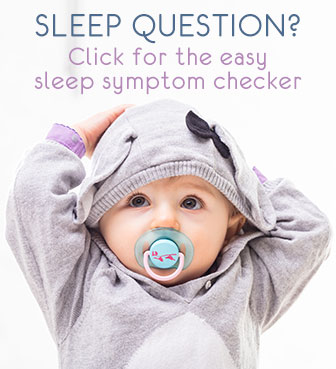How To Recognize the Early Signs of Teething
Author Name: Heidi Holvoet, PhD
Medical fact-check: Dr Leah Alexander, M.D., F.A.A.P.
Use the
symptom checklists below
to
recognize the signs of teething early on. The signs are usually easy to spot
but also easily confused with
other issues.
Most
symptoms are mild and typically concur with other common baby
sleep problems.
Good to know is that babies are usually easily consoled when having teething pain. This is different from other possible sleep disturbers such as for example pain from an ear infection.
And not all babies show all symptoms. Some show none at all and will
simply surprise you with that shiny first tooth one day.
 photo
courtesy
by
flash.pro
photo
courtesy
by
flash.pro
You may only notice that your baby suddenly stops sleeping through the
night with no obvious reason. Then one day you discover the first
tooth, and she goes right back to sleeping well.
Or, your baby may be the
classroom
example and suffer from all possible teething
symptoms from red cheeks to dribbling to severe diaper rash.
In any case, once you know when and what to look for, you will be
better prepared and be able to avoid sleep
troubles.
When
can you expect the first signs of teething?
And once it's happening,
which
remedies are efficient?
Teething signs to look out for
There are three types of symptoms :
1. In and near baby's mouth - most typical of teething
- Dribbling
-
Flushed red cheeks
- Skin rash or chapped skin around the mouth
- Urge to put fingers in her mouth
- Urge to bite or chew on everything around
- Sore red gums
- Whitish gum spots
- You can feel a tooth (gently touch with a clean finger)
- A blueish color on an area of the gums (due to a molar erupting near a vein which causes discoloration)
2. Body
- Runny nose
- Slightly raised temperature (but no fever)
- Diaper rash
- Touching or pulling the ears (there is a nerve running from the ear to the chin leading many babies to feel teething pain in their ears. This ear tugging is also typical for an ear infection so it's best to double-check this with your doctor to make sure it's only teething)
3. Mood
- Cranky, irritable
- Restless
- Disturbed sleep
- Unexplained crying
- Less appetite
The
in and near baby's mouth
ones are clearly the most typical signs of
teething
. The other symptoms can also occur when your baby has
a cold, a viral infection, suffers from fungal infection, etc. But if they happen in combination with some discomfort around the mouth they can point to teething.
Now that you know when and what to look for, you're well prepared to
face this important milestone in your baby's development using
effective
teething remedies
.
Article Author: Heidi Holvoet, PhD - Founder, senior sleep consultant

Heidi Holvoet, PhD, is the founder of the Baby Sleep Advice website and movement, an award-winning author, baby & toddler sleep consultant with 17+ years experience as well as a certified lactation counselor.
Over the years, Heidi has received several awards inluding a Mom's Choice Award (MCA) and National Parenting Awards (NAPPA) for her Baby Sleep Advice website, programs and books. Also, Baby Sleep Advice was awarded "Most Trusted Infant's Sleep Solutions Company 2023" in the Benelux Enterprise Awards 2023.
Heidi continually conducts personal research and participates in continued education and in that way stays up to date with current scientific and pyschosocial infant care.
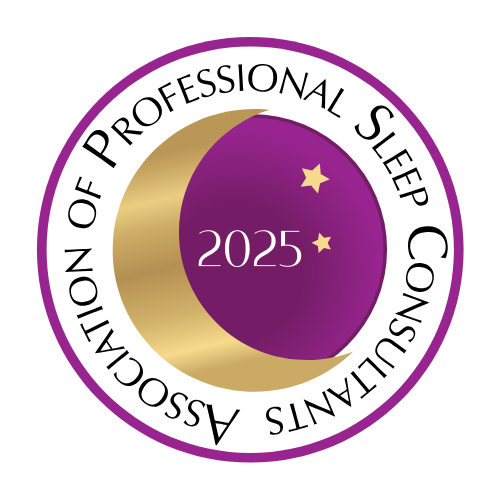
She is also a member of the Association of Professional Sleep Consultants of which she was one of the earliest contributors. She obtained her PhD degree in physics at the University of Ghent in Belgium.
Heidi is passionate about helping babies and their parents sleep more and better, with her trademark holistic and truly-no-tears approach that has been proven and praised time and again by parents worldwide to be effective and truly no-tears. Respect for you as a parent and your baby, is at the heart of Heidi's warm and kind support. Her approach always keeps in mind a baby's needs and abilities at any given age, is based on pediatric science and the most up to date knowledge in infant care and sleep science.
As well as the award-winning baby sleep programs, Heidi offers popular 1:1 consults and easy-access 30-minute SOS Sleep sessions.

Baby waking every hour?
by Heidi Holvoet, PhD
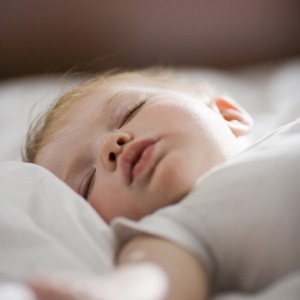
Sleep schedules by age
by Heidi Holvoet, PhD
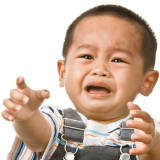
Separation Anxiety
by Heidi Holvoet, PhD
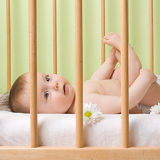
Crib safety guidelines
by Heidi Holvoet, PhD

Why does my baby wake up every hour?
by Heidi Holvoet, PhD

